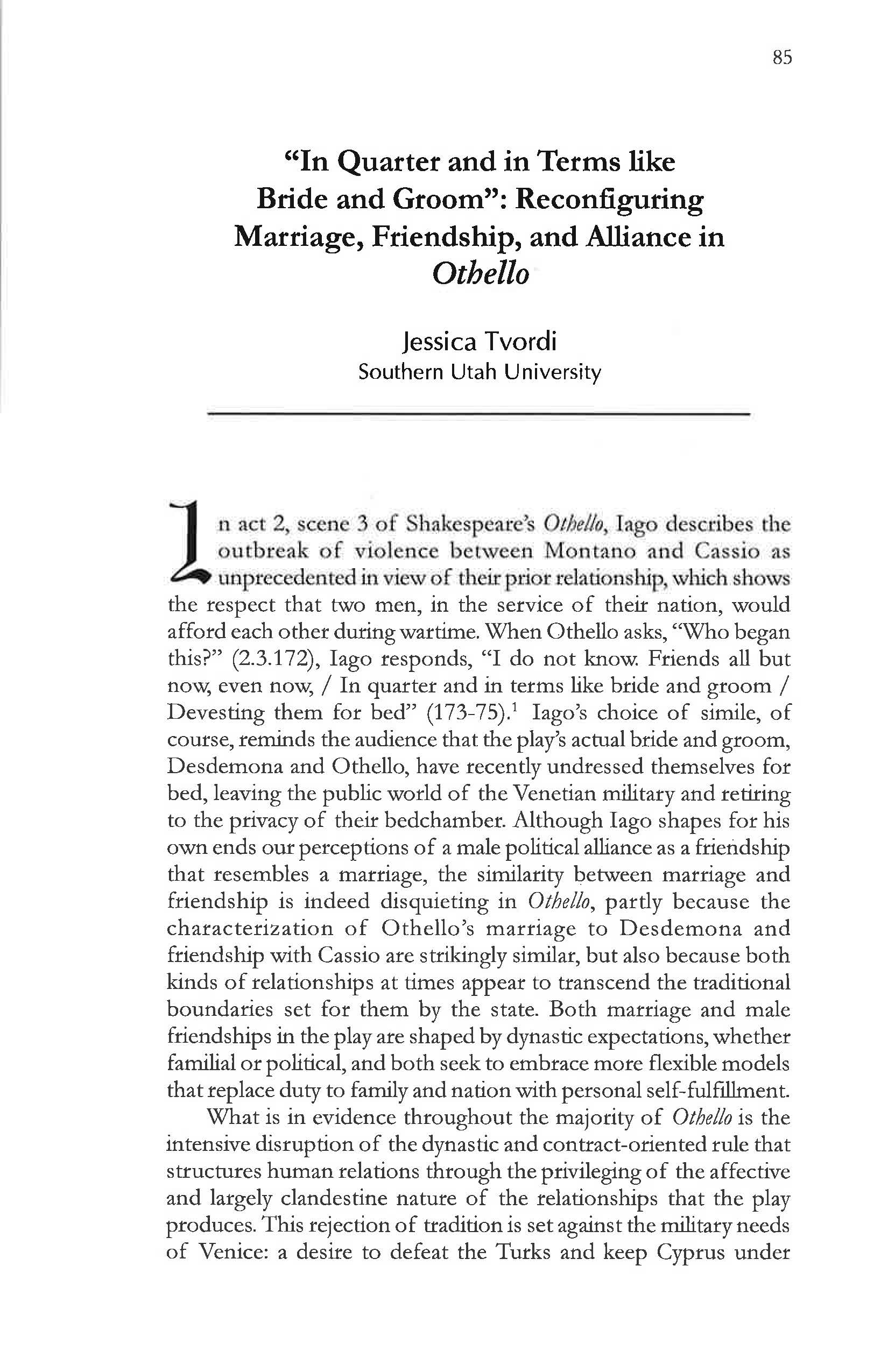"In Quarter and in Terms like Bride and Groom": Reconfiguring Marriage, Friendship, and Alliance in Othello
Main Article Content
Abstract
In act 2, scene 3 of Shakespeare’s Othello, Iago describes the outbreak of violence between Montano and Cassio as unprecedented in view of their prior relationship, which shows the respect that two men, in the service of their nation, would afford each other during wartime. When Othello asks, “Who began this?” (2.3.172), Iago responds, “I do not know. Friends all but now, even now, / In quarter and in terms like bridge and groom / Devesting them for bed” (173-75).1 Iago’s choice of simile, of course, reminds the audience that the play’s actual bridge and groom, Desdemona and Othello, have recently undressed themselves for bed, leaving the public world of the Venetian military and retiring to the privacy of their bedchamber. Although Iago shapes for his own ends our perceptions of a male political alliance as a friendship that resembles a marriage, the similarity between marriage and friendship is indeed disquieting in Othello, partly because the characterization of Othello’s marriage to Desdemona and friendship with Cassio are strikingly similar, but also because both kinds of relationships at times appear to transcend the traditional boundaries set for them by the state. Both marriage and male friendships in the play are shaped by dynastic expectations, whether familial or political, and both seek to embrace more flexible models that replace duty to family and nation with personal self-fulfillment.
